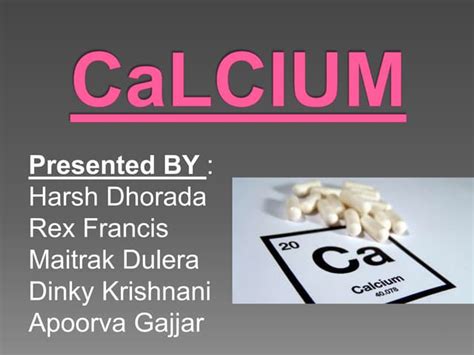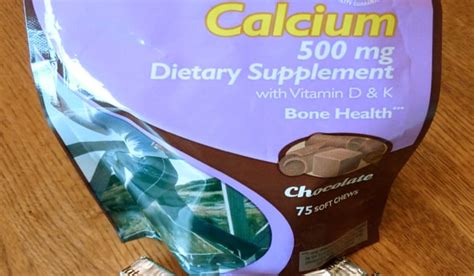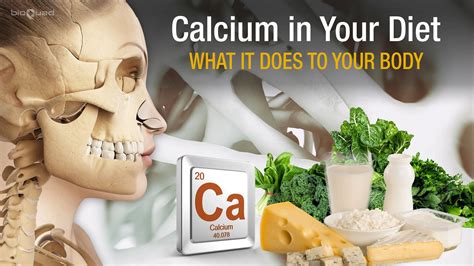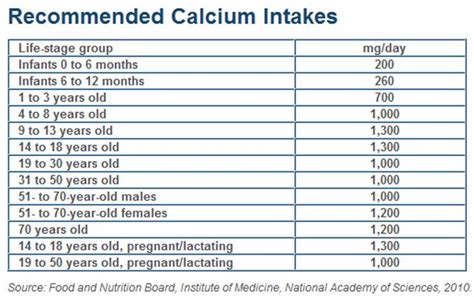Intro
Boost bone health with 5 essential calcium tips, including rich food sources, supplements, and absorption enhancers, to maximize calcium benefits and prevent deficiency, ensuring strong bones and teeth through optimal calcium intake and vitamin D balance.
Calcium is one of the most essential minerals in the human body, playing a critical role in building and maintaining strong bones and teeth, as well as supporting various bodily functions. Despite its importance, many individuals do not consume enough calcium in their daily diets, leading to potential health issues such as osteoporosis and weakened bones. Understanding the significance of calcium and how to incorporate it into your diet is crucial for maintaining overall health and well-being. In this article, we will delve into the world of calcium, exploring its benefits, sources, and tips for ensuring you get enough of this vital mineral.
The importance of calcium cannot be overstated. It is the most abundant mineral in the human body, with approximately 99% of it found in bones and teeth. Calcium also plays a role in muscle function, nerve function, and blood clotting, making it a mineral that affects nearly every aspect of health. However, as people age, their bones naturally lose density, making them more susceptible to fractures and osteoporosis. This is where calcium supplementation and a calcium-rich diet come into play, helping to mitigate these risks and support bone health throughout one's life.
Maintaining strong bones and overall health requires a multifaceted approach that includes a balanced diet, regular exercise, and adequate calcium intake. The challenge for many is knowing how to ensure they are getting enough calcium without overdoing it, as excessive intake can lead to its own set of problems. Moreover, factors such as dietary restrictions, lifestyle choices, and the quality of calcium supplements can complicate the matter, making it essential to have a clear understanding of calcium and its role in human health.
Introduction to Calcium

Benefits of Calcium
The benefits of calcium are multifaceted and far-reaching. For bone health, calcium is indispensable, helping to build and maintain the structure and strength of bones and teeth. It also supports the health of muscles and nerves, aiding in the contraction and relaxation of muscles and the transmission of nerve impulses. Furthermore, calcium plays a role in blood clotting, ensuring that wounds heal properly and reducing the risk of excessive bleeding. In terms of overall health, adequate calcium intake has been associated with a reduced risk of osteoporosis, hypertension, and possibly even certain types of cancer.Calcium Sources

Types of Calcium Supplements
Choosing the right calcium supplement can be overwhelming due to the variety of forms available. Calcium carbonate is one of the most common and inexpensive forms, often found in antacids and calcium supplements. However, it may cause stomach upset in some individuals. Calcium citrate, on the other hand, is more easily absorbed by the body and less likely to cause digestive issues, making it a preferred choice for many. Other forms, like calcium phosphate and calcium gluconate, are also available, each with its own set of benefits and potential drawbacks.5 Calcium Tips for Better Health

-
Explore Non-Dairy Calcium Sources: For those who are lactose intolerant or prefer not to consume dairy, there are plenty of non-dairy sources of calcium. Leafy green vegetables, fortified plant-based milk, and tofu are excellent alternatives.
-
Consider Calcium Supplements: If you're finding it challenging to get enough calcium from your diet, consider taking a calcium supplement. However, always consult with a healthcare provider before starting any new supplement regimen.
-
Maintain a Balanced Diet: A well-rounded diet that includes a variety of foods can help ensure you're getting enough calcium. Additionally, vitamin D is crucial for calcium absorption, so don't forget to include vitamin D-rich foods or consider a supplement if necessary.
-
Stay Hydrated: While not directly related to calcium intake, staying hydrated is essential for overall health and can help your body absorb nutrients more effectively. Aim to drink plenty of water throughout the day.
Practical Applications of Calcium Tips
Applying these calcium tips to your daily life can make a significant difference in your bone health and overall well-being. For instance, starting your day with a calcium-rich breakfast, such as yogurt with fortified cereal, can set you up for success. Additionally, incorporating physical activity, especially weight-bearing exercises, can further support bone health by stimulating bone growth and density.Calcium and Bone Health

Exercises for Bone Health
Regular exercise, particularly weight-bearing and resistance exercises, is vital for maintaining bone density and strength. Activities such as walking, jogging, and weightlifting stimulate bone growth and can help prevent bone loss. For older adults or those at risk of osteoporosis, exercises that improve balance and flexibility, such as tai chi or yoga, can also be beneficial in reducing the risk of falls and fractures.Calcium Intake Recommendations

Monitoring Calcium Levels
Monitoring calcium levels, especially in individuals with known calcium deficiencies or those taking calcium supplements, is crucial. Blood tests can measure calcium levels in the blood, while bone density tests can assess the strength and health of bones. Regular health check-ups and discussions with a healthcare provider can help identify any issues related to calcium intake and bone health.Conclusion and Future Directions

Final Thoughts on Calcium
As we move forward, it's clear that calcium will continue to be a critical component of health discussions. Whether through dietary changes, increased physical activity, or the strategic use of supplements, the steps we take today can have a profound impact on our bone health and quality of life in the years to come. By prioritizing calcium intake and staying informed about the latest developments in bone health, we can work towards a future where osteoporosis and related conditions are less prevalent, and overall health and well-being are optimized.What are the best sources of calcium?
+Dairy products like milk, cheese, and yogurt are among the best sources of calcium. Non-dairy sources include leafy green vegetables, fortified plant-based milk, and tofu.
How much calcium do I need each day?
+The recommended daily intake of calcium varies by age, but generally, adults need about 1,000 mg per day, increasing to 1,200 mg for women over 50 and men over 70.
Can I get too much calcium?
+Yes, excessive calcium intake can lead to health issues such as kidney stone formation, hardening of arteries, and interference with iron absorption. It's essential to follow recommended intake guidelines.
We hope this comprehensive guide to calcium has provided you with valuable insights and practical tips for enhancing your bone health and overall well-being. Whether you're looking to prevent osteoporosis, manage a calcium deficiency, or simply ensure you're getting enough of this vital mineral, the information and resources outlined here can serve as a powerful starting point. Remember, maintaining strong bones and a healthy body is a lifelong journey, and every step you take towards prioritizing calcium intake and bone health brings you closer to a future filled with vitality and wellness. Share your thoughts, experiences, and questions about calcium and bone health in the comments below, and let's work together towards a healthier tomorrow.
